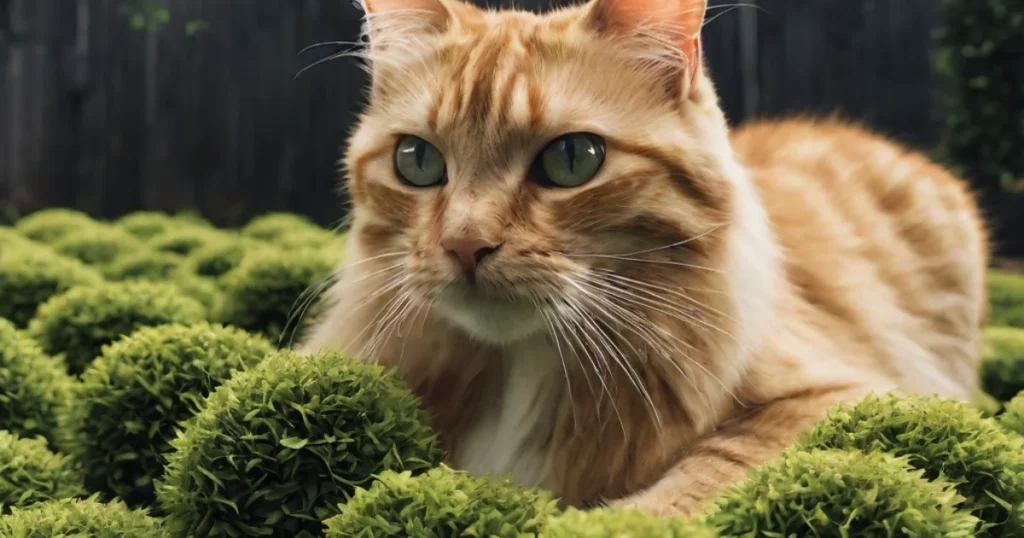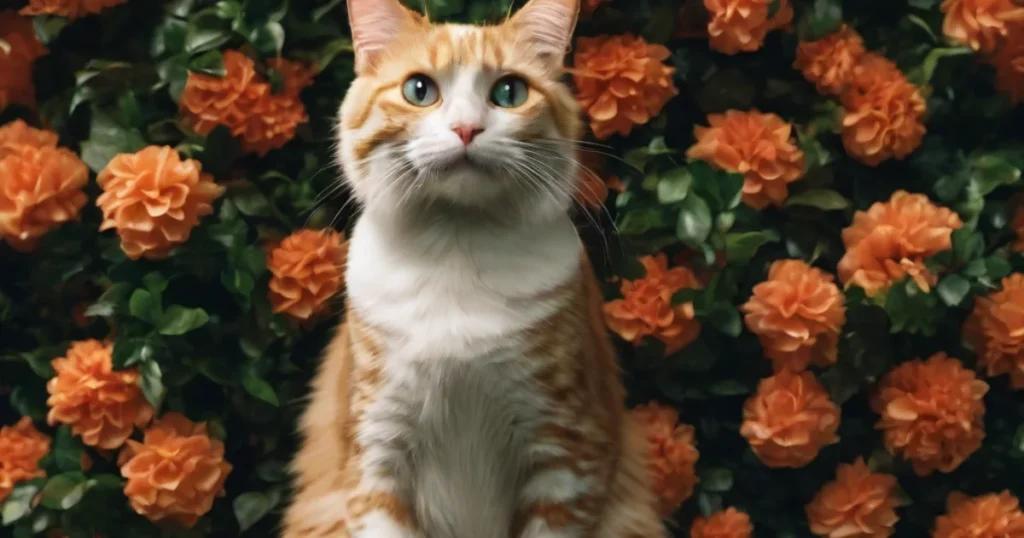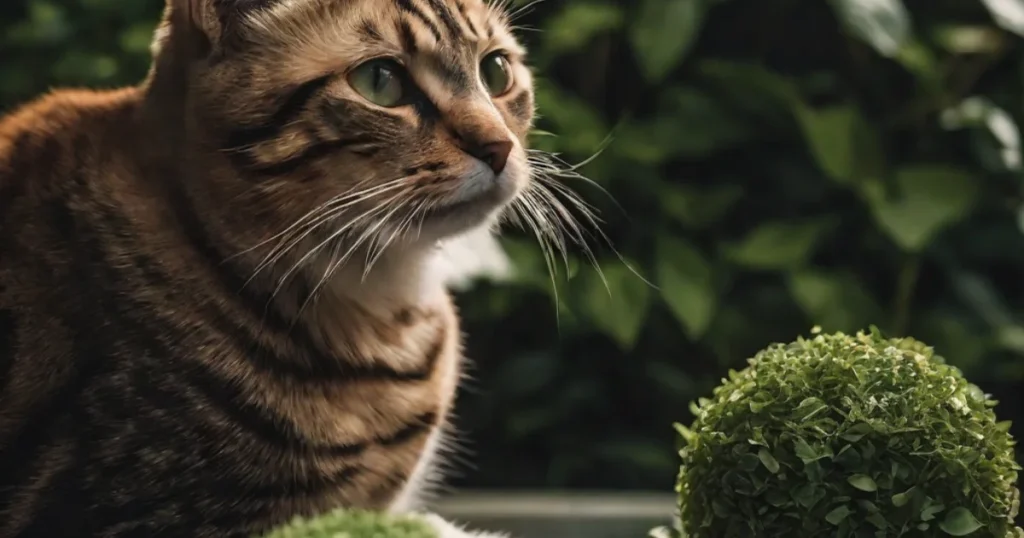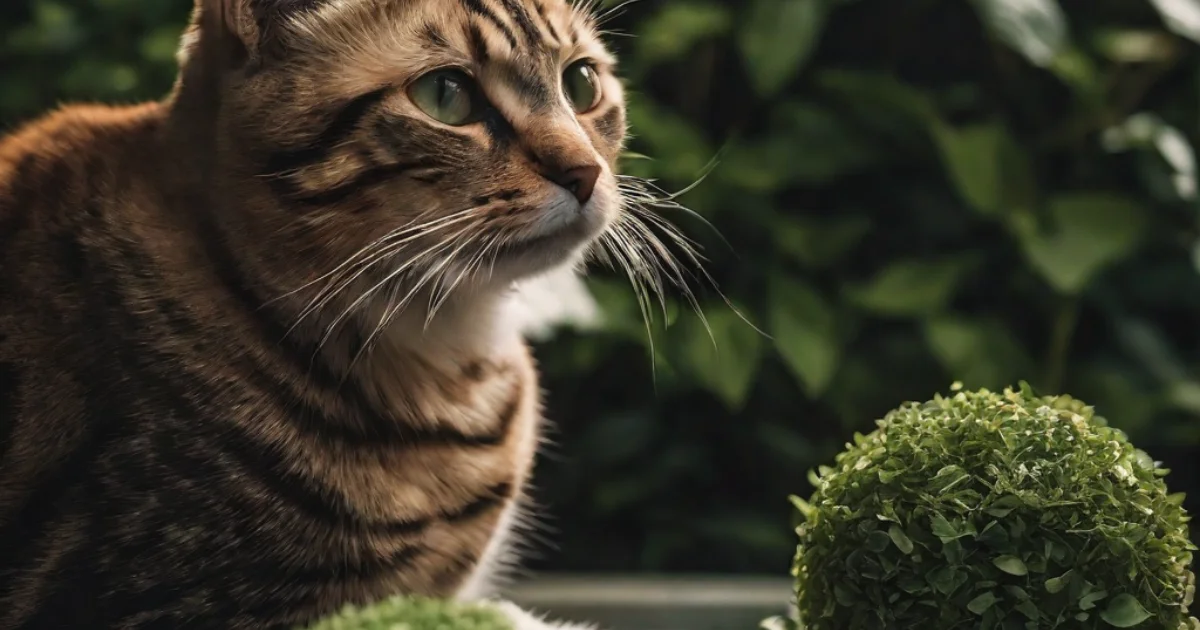Are hedge balls poisonous to cats?
Hedge balls, also known as hedge apples or Osage oranges, are not considered poisonous to cats. However, they can pose a choking hazard if ingested in large quantities. It’s generally recommended to keep them out of your cat’s reach to prevent any potential issues.
If you’re a cat owner, you’re probably familiar with the constant worry of keeping your furry friend safe from potential dangers. From toxic plants to harmful household items, it seems like there’s always something to watch out for. One common question that arises is: are hedge balls poisonous to cats? These small green fruits, also known as Osage oranges, are often used as natural pest repellents in homes and gardens. However, their safety around cats is a topic of concern for many pet owners. In this blog post, we’ll dive into the facts and debunk the myths surrounding hedge balls and their potential toxicity to our feline companions.

Understanding Hedge Balls: What Are They?
Hedge balls, also known as Osage oranges, are small green fruits that come from the Osage orange tree (Maclura pomifera). Native to North America, these fruits have a distinctive knobby appearance and a citrus-like scent. They are often used as natural pest repellents due to their strong odor, which is said to keep insects and spiders away.
Despite their name, hedge balls are not related to oranges. They are more closely related to mulberries and figs. The name “hedge ball” comes from their historical use as a natural barrier to keep livestock and horses contained within certain areas.
Hedge balls are commonly found in gardens, both as natural decorations and as a way to deter pests. They can also be found in certain stores as a natural alternative to chemical-based insect repellents.
While hedge balls may be a popular choice for pest control, it is important to consider their potential toxicity to cats. Many cat owners are concerned about the safety of hedge balls around their feline companions. In the next section, we will delve into the topic of whether hedge balls are poisonous to cats or not, and uncover the facts behind this common concern.
The Toxicity Factor: Are Hedge Balls Poisonous?
As a cat owner, it’s natural to worry about the safety of your feline friend. And when it comes to hedge balls, the concern is no different. So, are hedge balls poisonous to cats? Let’s delve into the facts and separate truth from fiction.
The truth is, there isn’t a clear-cut answer to this question. While hedge balls are not considered highly toxic to cats, there are some potential risks to be aware of. The skin and inner flesh of the fruit contain a milky sap that can cause skin irritation and gastrointestinal upset if ingested. Ingesting large amounts of hedgeball flesh can also lead to intestinal blockages, which can be a serious health concern for cats.
It’s important to note that cats are generally not attracted to hedge balls due to their strong odor. However, curious cats may still decide to take a nibble. To minimize any potential risks, it’s best to keep hedge balls out of your cat’s reach.
If you suspect that your cat has ingested a hedge ball or is experiencing any symptoms of gastrointestinal distress, it’s crucial to contact your veterinarian immediately. They can provide the appropriate guidance and treatment for your cat’s specific situation.
While hedge balls may offer natural pest control benefits, it’s essential to prioritize your cat’s safety first. Exploring alternative options and consulting with your veterinarian will ensure that your cat remains happy and healthy in your home.

Cats and Hedge Balls: An In-depth Analysis
Now that we’ve discussed what hedge balls are and their potential toxicity to cats, let’s take a closer look at the relationship between these small green fruits and our feline companions.
First and foremost, it’s crucial to recognize that every cat is different. While some cats may show no interest in hedge balls, others may be more curious and inclined to investigate or even taste them. It’s important to observe your cat’s behavior around hedge balls and make a decision based on their tendencies.
If you do decide to keep hedge balls in your home or garden, there are certain precautions you can take to minimize any potential risks. One option is to place the hedge balls in areas that are inaccessible to your cat, such as high shelves or behind closed doors. Another option is to surround the hedge balls with barriers, such as baby gates or fences, to prevent your cat from reaching them.
Additionally, providing your cat with alternative forms of enrichment can redirect their attention away from the hedge balls. Engage them in playtime with interactive toys, provide scratching posts, or create a stimulating environment with climbing structures.
Lastly, regular check-ups with your veterinarian are crucial for ensuring your cat’s overall health and well-being. If you have any concerns about the safety of hedge balls or if your cat has come into contact with them, don’t hesitate to seek professional advice.
Alternative Safe Plants for Cats
If you’re concerned about the potential toxicity of hedge balls to your beloved feline companion, it’s understandable that you may want to explore alternative safe plants for cats. Fortunately, there are plenty of options available that can add beauty to your home or garden without posing a risk to your furry friend.
One popular choice is the spider plant (Chlorophytum comosum). Not only is it safe for cats, but it’s also a great air purifier. Another cat-friendly option is the Boston fern (Nephrolepis exaltata). Its lush green fronds are not only visually appealing but also non-toxic to cats.
For those looking for a splash of color, the African violet (Saintpaulia spp.) is a safe and vibrant choice. It thrives indoors and adds a pop of purple or pink to any space. The areca palm (Dypsis lutescens) is another non-toxic plant that can bring a tropical feel to your home without harming your cat.
It’s important to note that while these plants are generally safe for cats, individual sensitivities can vary. Always monitor your cat’s behavior around new plants and consult with your veterinarian if you have any concerns.
By incorporating alternative safe plants into your home or garden, you can create a cat-friendly environment that both you and your furry friend can enjoy.

Steps to Protect Your Cat From Potential Harm
When it comes to keeping your cat safe from potential harm, taking proactive steps is essential. Here are some important measures you can take to protect your cat from the potential dangers associated with hedge balls:
1. Keep hedge balls out of reach: The easiest and most effective way to protect your cat from hedge balls is to keep them out of their reach. Place hedge balls in areas that are inaccessible to your cat, such as high shelves or behind closed doors.
2. Create physical barriers: Another option is to create physical barriers around the hedge balls. Use baby gates or fences to surround the area where the hedge balls are located, preventing your cat from reaching them.
3. Provide alternative forms of enrichment: Redirect your cat’s attention away from hedge balls by providing alternative forms of enrichment. Engage them in playtime with interactive toys, provide scratching posts, or create a stimulating environment with climbing structures. By providing these outlets for your cat’s instincts, they will be less inclined to explore potentially harmful items.
4. Regularly monitor your cat: Always keep a close eye on your cat’s behavior, especially when introducing new items into your home or garden. Cats are curious by nature, so monitoring their interactions with hedge balls or any other potentially toxic items is crucial.
5. Consult with your veterinarian: If you have any concerns about the safety of hedge balls or if your cat has come into contact with them, consult with your veterinarian. They can provide specific guidance tailored to your cat’s needs and help you navigate any potential risks.
By following these steps, you can ensure that your cat remains safe and healthy, while still enjoying your home and garden. Remember, it’s always better to be proactive and take precautions to protect your furry friend from potential harm.
Consultation with Vet: The Safest Bet
When it comes to the safety and well-being of your beloved cat, consulting with a veterinarian is always the safest bet. While we have provided information and suggestions throughout this blog post, it’s important to remember that every cat is unique and may have individual sensitivities or health concerns.
A veterinarian can provide personalized advice based on your cat’s specific needs and circumstances. They have the expertise and knowledge to assess the potential risks associated with hedge balls or any other potential hazards in your home or garden. By discussing your concerns with a veterinarian, you can gain a better understanding of the potential risks and the best course of action to keep your cat safe.
In addition to addressing concerns about hedge balls, a veterinarian can also guide general cat safety, proper nutrition, behavior, and overall well-being. Regular check-ups and consultations with a vet are crucial for maintaining your cat’s health and ensuring they live a happy and fulfilling life.
Remember, your veterinarian is your partner in keeping your cat safe and healthy. By seeking their professional advice, you can have peace of mind and take the necessary steps to provide the best care for your feline companion.
Conclusion
In conclusion, when it comes to the question of whether hedge balls are poisonous to cats, the answer is not black and white. While hedge balls are not highly toxic to cats, there are potential risks to be aware of. The milky sap found in the skin and inner flesh of the fruit can cause skin irritation and gastrointestinal upset if ingested. Ingesting large amounts of hedge ball flesh can also lead to intestinal blockages, which can be serious.
Cat owners need to be vigilant and take proactive measures to keep their furry friends safe. This includes keeping hedge balls out of reach, creating physical barriers, providing alternative forms of enrichment, regularly monitoring your cat’s behavior, and consulting with a veterinarian for personalized advice.
If you’re concerned about the potential toxicity of hedge balls to your cat, there are plenty of alternative safe plants that you can consider. Spider plants, Boston ferns, African violets, and areca palms are all cat-friendly options that can add beauty to your home without posing a risk.
Remember, the safest bet when it comes to the safety and well-being of your cat is to consult with a veterinarian. They can provide tailored advice and guidance based on your cat’s individual needs and circumstances. By taking these steps and prioritizing your cat’s safety, you can create a happy and healthy environment for both you and your furry friend.
FAQs:
Q: Are hedge balls pet safe?
A: Hedge balls, also known as hedge apples or Osage oranges, are generally considered safe for pets. However, it is best to keep them out of your pet’s reach to prevent choking or gastrointestinal issues if ingested.
Q: Are hedgeapples poisonous?
A: Hedgeapples, or Osage oranges, are not typically poisonous to humans or animals. However, they are not intended for consumption and can cause stomach discomfort if ingested.
Q: Are hedge balls edible?
A: Hedge balls, or Osage oranges, are not typically consumed by humans or animals. They have a hard, inedible exterior and are primarily used for decorative purposes.
Q: What are hedge balls good for?
A: Hedge balls, or Osage oranges, have several uses. They are often used as natural insect repellents, as the compounds in the fruit can deter certain pests. Additionally, they are sometimes used for crafts, decorations, or as seasonal ornaments.

